
Imagine you’re on a highway. Up ahead is a storm. It’s a big one. You want to get where you’re going, but should you turn around?
Before deciding what to do, you stop to enjoy the view. The air is earthy. Electrified. Colours vivid: dark green, dark blue, pink, distant purple.
Driving for hours in a time machine car has put you in a trance. The road ahead has taken you into the future and left the past in a rear-view mirror as shown In a Perfect World.
 The sky rumbles and ruminates upon your fate as you stand bewildered. A thundering song rocks your brain: “I was caught in the middle of a railroad track (thunder!). I looked round and I knew there was no turning back (thunder!)” (“Thunderstruck” AC/DC).
The sky rumbles and ruminates upon your fate as you stand bewildered. A thundering song rocks your brain: “I was caught in the middle of a railroad track (thunder!). I looked round and I knew there was no turning back (thunder!)” (“Thunderstruck” AC/DC).
Between waking and sleeping and thinking and doing you breathe deeply.

The storm edges closer but there is no hurry, no tension, no mental chatter. You are as loose as a goose as you listen to sound come and go. Your face is stupidly slack. Vision widens.
Inside the car the Clash asks: “Should I stay or should I go?”
It’s perfect.
Everything is just so: Earth, sky, air, body. The voice within goes quiet when you touch reality. Judgement: suspended! Impatience: gone! A childlike freedom hits. You’re like a bird perched on a branch giving way, but why worry?

Life is forever asking: What are you going to do? (see also: The Joy of Living and Everyday Ecstasy).
“Tomorrow and tomorrow and tomorrow,” said Macbeth immersed in a future that didn’t exist. Life is “a tale told by an idiot, full of sound and fury, signifying nothing,” but like a lot of people living fictional lives, he confused thinking with reality. That’s probably where the whole notion of a spirit within came from.
 We trick ourselves into thinking there must be a watcher for something to be watched, that what happens now follows the past, but it’s the other way round: the past follows from what’s happening now.
We trick ourselves into thinking there must be a watcher for something to be watched, that what happens now follows the past, but it’s the other way round: the past follows from what’s happening now.
It’s a head-game we play in our storied lives where actions have responses and character is revealed.
Even though we know actors are pretending, we pretend with them. Management (MGMT) was correct, “We are fated to pretend” (“Time To Pretend“).
Most stories go thus: want then obstacle then action then response (repeat) – then a final outcome when the want is gone or resources are depleted. That’s the beat of a hero’s journey. Behind it all there’s an underlying message or “big idea.”
What we want associates with what is lacking: a hungry person wants food, a thirsty person wants water, a prisoner wants freedom, a sick person wants health, a cheated person wants justice, a bored person wants excitement, a weak person wants power and so on ad infinitum.
Wanting never ends.
A person who has everything wants more. It’s hard to imagine that you can contemplate your way into a mental state aligned with nature and make wanting and getting one and the same.
If asked, “What do you want?” what would you say? Is it food, shelter, money, sex, health, longevity, love, happiness, freedom? contentment, excitement, enlightenment… a stupendous high? What?
All of the above?
While you might feel stressed and worthless as you try to achieve, if you imagine achieving whatever it is, there could be a point afterwards when the achievement isn’t that important. When that happens, you realize that you’re the same person you’ve always been.
Within the life you lead, you will be about as happy as you choose to be. No matter how fantastic the achievement, eventually it will pass and become old news. Look at how research into lottery winners shows they’re not much happier than those who didn’t win (source).
Of the 108 billion people who have lived and the 7.9 billion swarming today (according to the World population Clock), there are just as many people with as many problems and wants as ever. At the end of the last day without understanding, a billionaire and pauper will tremble naked and alone under their clothes.
In a world where automation replaces people, in the not too distant future, half the people will need something to do. That’s when a philosophy of enjoyment will be critical.

Our storied brains help us enjoy despite self-destruction as a species. And yet, if you want to get everything you want, the answer isn’t in satisfaction of urges.
It’s the opposite.
Like Jerry Seinfeld said to George Castanza, “If every instinct you have is wrong, then the opposite would have to be right.” “Yes!” says George. “I will do the opposite!” (see: George does the opposite).

Imagine looking at yourself from ten feet above. Feel aware of yourself in all that you see. Breathe consciously. When you’re done reading, don’t do anything. Just pause. Look around. See yourself seeing. This is it. There isn’t any more. Your heart is beating. Love what you see. It’s a perfect world. Sense everything in its entirety and flow with what is. Feel purely natural like a planet going around the sun without any sort of control, force, or attempt to revolve.
All insides have outsides. Yours doesn’t end with the skin. Hear Bert’s “African Beat” and know the world is your body! Engage in spontaneous effortless movement like a stream and what you want and get are made one and the same.
Enjoy! Enjoy! Enjoy.


 A world view is how truth and reality is understood. It
A world view is how truth and reality is understood. It 



 Instead of three bears, picture three brains inside your skull like neuroscientist Paul MacLean (1913-2007) said there was.
Instead of three bears, picture three brains inside your skull like neuroscientist Paul MacLean (1913-2007) said there was. The neo-mammalian (or neocortex) is the seat of perception and imagination. Whether religious or not, the three brains theory allegorically explains why people think and do what they think and do do.
The neo-mammalian (or neocortex) is the seat of perception and imagination. Whether religious or not, the three brains theory allegorically explains why people think and do what they think and do do. Lower brains are said to be instinctive. Their concern is with reproduction and dominance, sometimes necessitating deception and violence.
Lower brains are said to be instinctive. Their concern is with reproduction and dominance, sometimes necessitating deception and violence. But in rare moments, when there are no demands put upon us, when one is quiet and comfortable, in such a peaceful interval, we are free to enter a higher mental state. When released from pride, ambition and self-justification, one looks at others not with criticism and judgement, but with a realization.
But in rare moments, when there are no demands put upon us, when one is quiet and comfortable, in such a peaceful interval, we are free to enter a higher mental state. When released from pride, ambition and self-justification, one looks at others not with criticism and judgement, but with a realization.



 People try to make themselves happy. When Judy Garland sang “
People try to make themselves happy. When Judy Garland sang “

 Think about how a rainbow appears. It’s your eye at the right angle combined with sunlight and water drops. Without you to see, a rainbow doesn’t appear. But a rainbow is more than light refraction. It isn’t a symbol. It has no reason for being. It’s light playing. It’s fun. It’s beauty.
Think about how a rainbow appears. It’s your eye at the right angle combined with sunlight and water drops. Without you to see, a rainbow doesn’t appear. But a rainbow is more than light refraction. It isn’t a symbol. It has no reason for being. It’s light playing. It’s fun. It’s beauty. Imagine yourself as a child. You are fed and content. Your world is not filtered by custom, interpretation, and analysis. The world is new. Imagine seeing a butterfly for the first time!
Imagine yourself as a child. You are fed and content. Your world is not filtered by custom, interpretation, and analysis. The world is new. Imagine seeing a butterfly for the first time! In
In  Even though we know what we should and shouldn’t do, something invariably happens to complicate simplicity and sour generosity. Irritation, frustration and sadness can shred good intentions.
Even though we know what we should and shouldn’t do, something invariably happens to complicate simplicity and sour generosity. Irritation, frustration and sadness can shred good intentions. By the end of the day we’re tired. We wind up flaked out on a chair, covered in cheesie dust. What went wrong? We tried, but therein is our problem. Who was the one trying? Was the spirit willing and the flesh weak? Remember Dr. Schwartz’s scientific dictum, “You are not your brain” (see:
By the end of the day we’re tired. We wind up flaked out on a chair, covered in cheesie dust. What went wrong? We tried, but therein is our problem. Who was the one trying? Was the spirit willing and the flesh weak? Remember Dr. Schwartz’s scientific dictum, “You are not your brain” (see:  Our brains can be like a Siren song luring us like sailors to shipwreck on a rocky coast. Thoughts become habitual through repeated pleasure-seeking and dopamine. Our heart may say, “No-no,” but our brain says, “Yes-yes!” Our brain often urges us to do what we probably shouldn’t.
Our brains can be like a Siren song luring us like sailors to shipwreck on a rocky coast. Thoughts become habitual through repeated pleasure-seeking and dopamine. Our heart may say, “No-no,” but our brain says, “Yes-yes!” Our brain often urges us to do what we probably shouldn’t. We may have more luxuries and conveniences thanks to the magic of technologies, but that doesn’t mean we’re happier. We’re busier. We now lack time to focus on things that produce a quieter happiness.
We may have more luxuries and conveniences thanks to the magic of technologies, but that doesn’t mean we’re happier. We’re busier. We now lack time to focus on things that produce a quieter happiness.

 You see your breath in the air and ask: “Who are you?” Who but you would know? Why not look into what it’s like being you – first person, singular, present tense? “Would you want to live and die without looking at the one doing that?” asked Douglas Harding.
You see your breath in the air and ask: “Who are you?” Who but you would know? Why not look into what it’s like being you – first person, singular, present tense? “Would you want to live and die without looking at the one doing that?” asked Douglas Harding.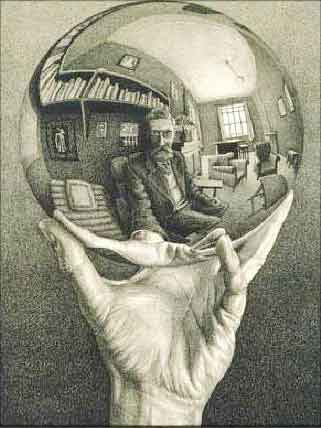


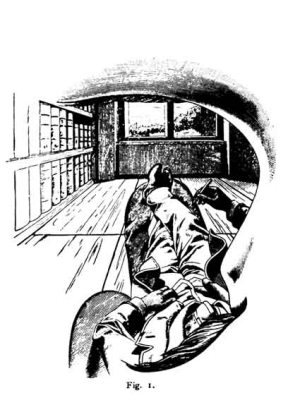
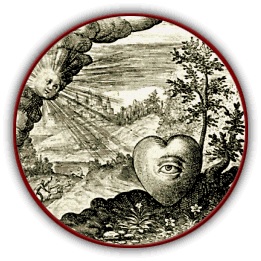 In the 1600’s Traherne wrote, “You never enjoy the world aright, till the Sea itself floweth in your veins, till you are clothed with the heavens, and crowned with the stars.” Traherne was a philosopher of enjoyment. He wrote, “Your enjoyment of the World is never right till every morning you awake in Heaven” (Centuries of Meditation). Wade (1944) writes of Traherne, “In the middle of the seventeenth century, there walked the muddy lanes of Herefordshire and the cobbled streets of London, a man who had found the secret of happiness… He became the most radiantly, most infectiously happy mortal this earth has known” (p. 2). This is the secret: It is in paying attention without thinking. Don’t be fooled by personality.
In the 1600’s Traherne wrote, “You never enjoy the world aright, till the Sea itself floweth in your veins, till you are clothed with the heavens, and crowned with the stars.” Traherne was a philosopher of enjoyment. He wrote, “Your enjoyment of the World is never right till every morning you awake in Heaven” (Centuries of Meditation). Wade (1944) writes of Traherne, “In the middle of the seventeenth century, there walked the muddy lanes of Herefordshire and the cobbled streets of London, a man who had found the secret of happiness… He became the most radiantly, most infectiously happy mortal this earth has known” (p. 2). This is the secret: It is in paying attention without thinking. Don’t be fooled by personality.




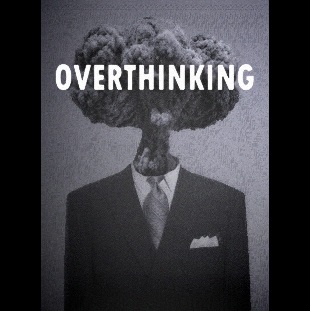 You see, it’s because of our brains. We either over-think and make it complicated, we under-think and act on insane urges or we multi-task and miss everything.
You see, it’s because of our brains. We either over-think and make it complicated, we under-think and act on insane urges or we multi-task and miss everything.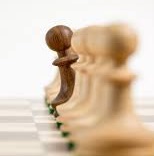 Our brains send messages. Sometimes these messages are destructive—ask anyone in therapy, rehab, prison or who is about to blow himself up. Not only do we deceive ourselves, other people trick us with their deceptions and w can become like pawns in the game of life, sacrificed for someone else’s idea of enjoyment.
Our brains send messages. Sometimes these messages are destructive—ask anyone in therapy, rehab, prison or who is about to blow himself up. Not only do we deceive ourselves, other people trick us with their deceptions and w can become like pawns in the game of life, sacrificed for someone else’s idea of enjoyment. Picture brain messages symbolically like they do in cartoons with a devil-you and an angel-you on each shoulder arguing their case for you to decide (see
Picture brain messages symbolically like they do in cartoons with a devil-you and an angel-you on each shoulder arguing their case for you to decide (see  On one side are symbols of light, innocence and wholesomeness (sappy?) and on the other, just the opposite (exciting?). In the battle between it comes down to focus. What do you choose to enjoy?
On one side are symbols of light, innocence and wholesomeness (sappy?) and on the other, just the opposite (exciting?). In the battle between it comes down to focus. What do you choose to enjoy? Do you take the gentle path of life as represented in Wordsworth’s poem, “I wandered lonely as a cloud; That floats on high o’er vales and hills; When all at once I saw a crowd; A host, of golden daffodils“? Or is that boring? “
Do you take the gentle path of life as represented in Wordsworth’s poem, “I wandered lonely as a cloud; That floats on high o’er vales and hills; When all at once I saw a crowd; A host, of golden daffodils“? Or is that boring? “ Do you prefer your entertainment on the excitingly evil side? How about delightful depravity and edgy cruelty that’s funny too? What’s your pleasure? Do you choose a quiet read, a walk in the park, a pint with a friend, or ‘gorified’ death in a Zombie Apocalypse?
Do you prefer your entertainment on the excitingly evil side? How about delightful depravity and edgy cruelty that’s funny too? What’s your pleasure? Do you choose a quiet read, a walk in the park, a pint with a friend, or ‘gorified’ death in a Zombie Apocalypse? Wholesome isn’t a word used much these days. It alludes to marketing all-natural breakfast cereals and family values but back in the year 1200 wholesome meant “of benefit to the soul.” It comes from the word “whole” meaning “healthy” (undamaged, entire, safe) and “-some” meaning “tending to” (
Wholesome isn’t a word used much these days. It alludes to marketing all-natural breakfast cereals and family values but back in the year 1200 wholesome meant “of benefit to the soul.” It comes from the word “whole” meaning “healthy” (undamaged, entire, safe) and “-some” meaning “tending to” (


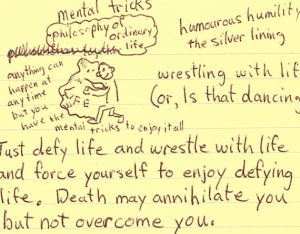
 How do you deal with struggle? Do you get worked up by troubles or do they roll off your back like water off a duck?
How do you deal with struggle? Do you get worked up by troubles or do they roll off your back like water off a duck?
 Question anyone on a busy street anywhere in the world and ask: “How are you?” The reply could very well be, “I’m busy like everybody.” It’s the mantra of modernity. “Busy, busy” is said as humanity hives the world, but to complain is ineffectual, not to mention, unenjoyable.
Question anyone on a busy street anywhere in the world and ask: “How are you?” The reply could very well be, “I’m busy like everybody.” It’s the mantra of modernity. “Busy, busy” is said as humanity hives the world, but to complain is ineffectual, not to mention, unenjoyable.

 No doubt you’ll get strange looks. You might get reported for statue behaviour. Serious people will think you’re odd, but who cares? Odd numbers are not divisible by two. If you’re an odd number, you’re alone, but this is your secret power. If you can endure the loneliness, you are home wherever you are.
No doubt you’ll get strange looks. You might get reported for statue behaviour. Serious people will think you’re odd, but who cares? Odd numbers are not divisible by two. If you’re an odd number, you’re alone, but this is your secret power. If you can endure the loneliness, you are home wherever you are.

 To not do isn’t a lull between doings. You can be not doing and look busy. To not be busy is to take the time to watch something far away. It is to linger on a sensory memory (see
To not do isn’t a lull between doings. You can be not doing and look busy. To not be busy is to take the time to watch something far away. It is to linger on a sensory memory (see 

 Picture unhappiness as a woman determined to be unhappy. She’s your personal antagonist and her breath is not good. Now, imagine playing a game of Snakes and Ladders (aka Chutes and Ladders) with her. Will it be enjoyable? Most people would think not, but for a philosopher of enjoyment, it’s a challenge.
Picture unhappiness as a woman determined to be unhappy. She’s your personal antagonist and her breath is not good. Now, imagine playing a game of Snakes and Ladders (aka Chutes and Ladders) with her. Will it be enjoyable? Most people would think not, but for a philosopher of enjoyment, it’s a challenge.





 Imagine that you are a lonely cloud hovering. Can you do that?
Imagine that you are a lonely cloud hovering. Can you do that?

 It has been said that there is no beauty equal to life. It would certainly be more difficult to know beauty if there wasn’t a you to perceive it. As a person who has found the secret thrilling life of intense happiness, you do not need a lot of stuff or acquaintances because you can contemplate any time you want.
It has been said that there is no beauty equal to life. It would certainly be more difficult to know beauty if there wasn’t a you to perceive it. As a person who has found the secret thrilling life of intense happiness, you do not need a lot of stuff or acquaintances because you can contemplate any time you want.